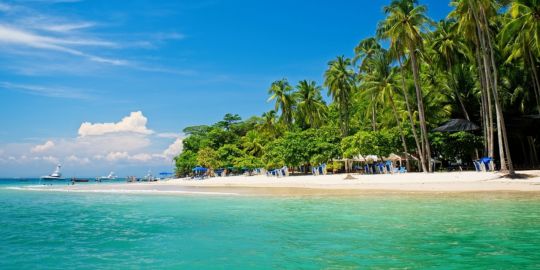Hi,
Environmental protection is a challenging issue for all the countries around the world. Would you say this issue is deemed of significance in Costa Rica?
Is the country going green through initiatives like waste management and selective sorting programs, renewable energies, public transport, green awareness campaigns and so forth?
How do you personally commit to improve the environment in your daily life?
We would greatly appreciate if you could tell us more about the various local initiatives for sustainable development in Costa Rica.
Many thanks in advance!
Kenjee
Environmental protection in Costa Rica
The types of septic systems permitted in Costa Rica are insane. The Costa Rica government has to adopt the same sort of septic systems used in North America.
They did, many years ago.
I vouch for that! We built a house two years ago and the requirements were as stringent as in Canada where I have built other houses. One of the BIG problems here are the houses erected without building permits (and I mostly refer to local houses "built" without proper permits). Our septic system and field was adhered to. It will take time to conform as all existing houses / structures seem to be exempt until a change or new permit is required. Many did not have an original permit.
They are very good about developing electrical power with non-fossil fuels and preservation of park lands. Although they do fairly well in providing potable water, they have a very poor record when it comes to treatment of sewage. From Wikipedia: "Wastewater treatment: 96% of all urban wastewater collected is discharged into rivers and receiving bodies without any treatment, generating public health risks and water resources contamination. 8% of the population is connected to a sewage system and to a wastewater treatment plant; but as of 2007 half of this wastewater is not treated, because the corresponding plants were out of operation. As of 2007 only 7 small towns had wastewater treatment plants, all of which had been built before 1975.[3] As of 2011, bidding was underway for a large wastewater treatment plant for the metropolitan area of San José with Japanese financing."
Costa Rica is a mixed bag when it comes to the environment.
They have one of the highest percentages per land mass of reserved forests in the world, and everywhere you go - outside of the cities - you see lots and lots of trees and forests - at least here in the western Central Valley where we have our lots.
That's what I love about Costa Rica: the green everywhere. We have a private forest next to us and all around this area are small and large forests with monkeys, toucans, hummingbirds, anteaters, and other wildlife.
On the other hand, many Ticos tend to throw trash everywhere (though this has improved over the past 10 years), and they use a very high volume of pesticides and herbicides. It pays to buy as much organic veges and fruit as you can find and afford.
Water is said to have a (relative) lot of arsenic in it and as mentioned all kinds of crap is dumped into the environment through less than perfect septic and drainage systems. While there may be laws in place, from what I see the Ticos and many expats as well do not abide by them because there is often no enforcement and it's cheaper not to do it "right" and "everyone else is doing it like this, why not us" kind of thinking.
What we do that's good for the environment is plant trees, bushes and flowers by the thousands. We've planted about 300 trees and bushes and grass in the past few months. We water them all by hand until the rains come. Since I've owned this property we've probably planted over 1,000 trees. My neighbor says he can see the difference in the wildlife and birds that we now get. (He plants a lot of trees and bushes too!)
We are picking up 200 more bushes (hedge) this week and plan to buy and plant at least 100 more trees when the rains come, on 3 of our lots. We planted about 100 plants that butterflies and hummingbirds like last week.
We bury our food garbage in the orchard and we try not to buy too many plastic containers or throw-away paper though we're not as vigilant about this as we'd like to be. We are working on using more glass and re-usable containers and less plastic. When we buy napkins and tp etc we at least buy the brown unbleached ones.
We stopped the caretaker from using Roundup when we bought the property and bought him a motorized "chopeador" (weed cutter) instead.









